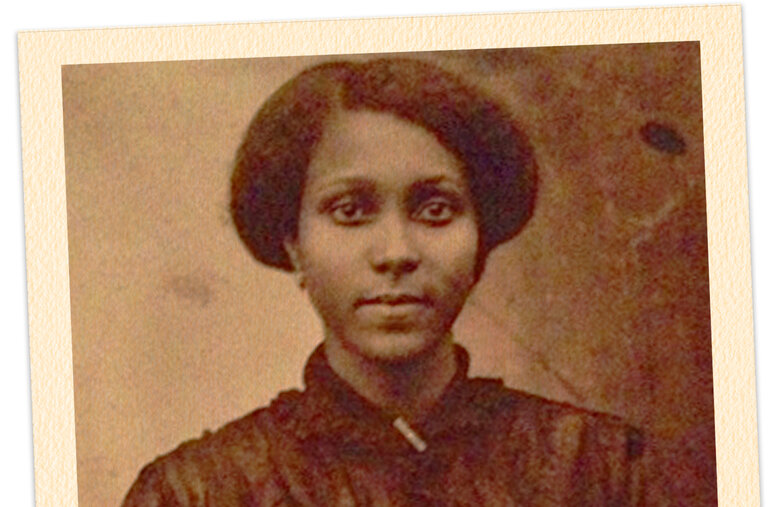She was crazy. Until very recently, that was all most of us knew about Louise Little, mother of Malcolm Little, aka Malcolm X and later, El-Hajj Malik El-Shabazz.
In The Autobiography of Malcolm X, written with Alex Haley, we learned that she suffered a nervous breakdown and was committed to a mental institution after her husband, Earl, was killed in Omaha, leaving her to care for eight children. Malcolm, a teen at the time, was sent to live with an older sister in Boston.
We knew that Louise and Earl Little were followers of Marcus Garvey, the strident Jamaican journalist (Negro World newspaper), entrepreneur (Black Star Line shipping company), organizer (United Negro Improvement Association), and leader (the Pan Africanist movement).
But more has been revealed about Lousie Little in recent books on the family and in Overlooked, the series of obituaries of remarkable people whose deaths were previously unreported in the NY Times.
Louise Langdon was born in Grenada. She learned independence and cultural values from the stories passed down to her from her grandparents, who were captured in West Africa as children. They were freed sometime after Britian banned slavery in 1833 and they owned their own farmland.
Louise immigrated alone to her uncle’s home in Montreal at age 21. Her uncle took her to a Garvey meeting where she met and married Earl Little.
The couple was regional organizers for the Garvey nationalist movement in the US. They opened chapters in Wisconsin and Michigan; Earl recruiting on the road, and Louise serving as chapter secretary.
Louise practiced autonomy at a time when not many women did. She made money as a clothing designer and seamstress. She often drove the family-owned car. She read widely, wrote eloquently (including for the Garvey newspaper), and spoke three languages.
She worked assiduously to counter the racism ingrained in her children’s textbooks and showed up at their school to protest particularly negative lessons. At home, they read aloud from different newspapers, a well-worn dictionary at the ready. She took them to various churches and temples to expand their religious perspectives. By seventh grade, Malcolm was a top student and class president.
No wonder adult Malcolm was such a voracious reader in prison, later rising to national spokesperson and recruiter for the Nation of Islam, and then evolving into one of the world’s most brilliant and controversial political thinkers.
She was tired. That was the reason, we were taught, for Rosa Parks’ refusal to give up her seat to a white passenger on a Montgomery bus in 1955. We knew her arrest was the spark that ignited the Montgomery Bus Boycott. But we did not really know that Parks was raised and trained in activism. Her activism was not accidental.
We knew her arrest was the spark that ignited the Montgomery Bus Boycott. But we did not really know that Parks was raised and trained in activism. Her activism was not accidental.
When the Klan marched down their street, her grandfather stood outside the family home armed with a shotgun. When white children in the neighborhood bullied her, she was quick to throw hands.
At age 20 she married Earl Parks, who was a member of the NAACP. Rosa became chapter secretary. She was formally trained in social justice leadership at the famed Highlander Folk School in Tennessee. She served as a traveling investigator and protest organizer in the cases of women who were raped by white men in their small southern towns. (The documentary, The Rape of Recy Taylor, highlights Parks’ brave work in that case.)
By 1955, the Montgomery NAACP and the SCLC were primed and waiting for the right set of circumstances to launch the boycott, and Rosa was well prepared to step into the spotlight.
Rosa Parks and Louise Little are just two of the African-ancestored mothers of the movement whose potent life stories have been watered down to near irrelevancy. We are coming to know them now as accomplished, self-determined and committed fighters for justice.
During the 25 years of Louise Little’s institutionalization, Malcolm only saw his mother twice. He was assassinated less than two years after she was released.
Brother Malcolm’s speeches and writings conveyed his conflicted feelings toward his mother. It’s understandable; the death of their father severely traumatized the children. But I didn’t know Louise held on for several years after Earl’s death. Not much was said about the specific nature of the structurally racist financial, legal and societal weapons arrayed against her, making it impossible for her to maintain her family – and her sanity – alone. And her role as an early and highly influential teacher in Malcolm’s life was significantly downplayed.
But in a letter to his brother Philbert, among other family correspondence unearthed in 2003, Malcolm privately admitted, “…all of our achievements are Mom’s, for she was a Most Faithful Servant of the Truth years ago. I praise Allah for her,” thus restoring her to her rightful place in his mind and heart.






